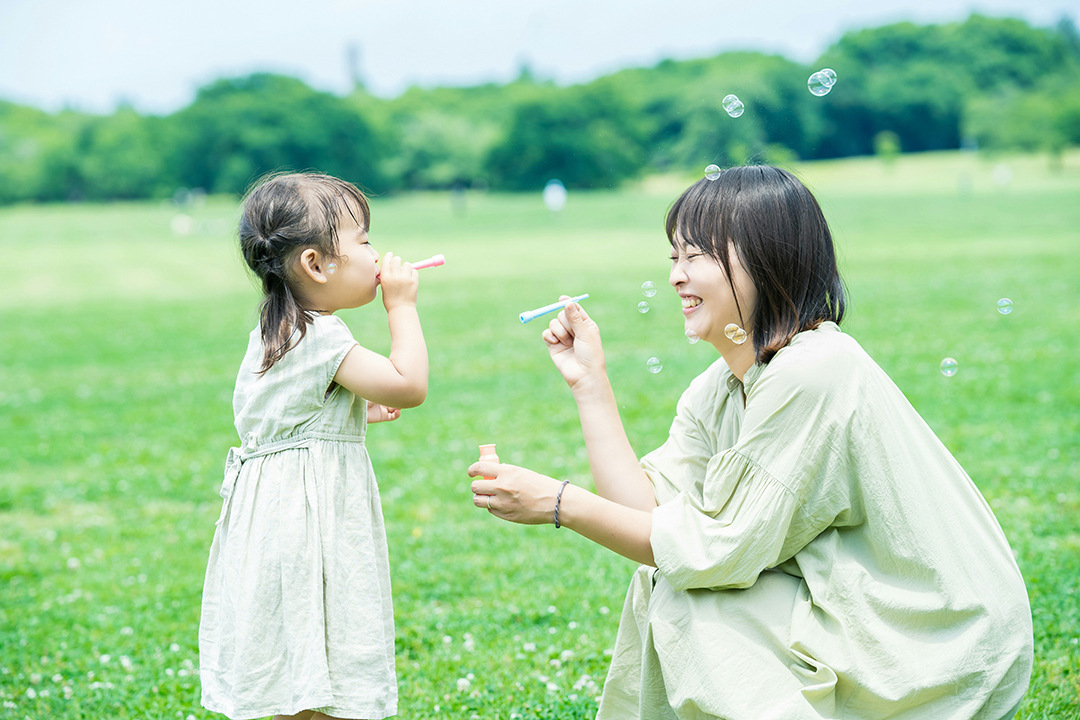Middle Child Sibling Rivalry

Whining constantly, demanding sweet snacks over and over, expecting to be carried, whacking her kind older brother, age 7 over the head with a nerf sword, and roughly touching the baby, our energetic 4-year-old niece Pat’s behavior was so annoying at the weekend reunion.
Middle Child Sibling Rivalry
Her dad read a big chapter book to her older brother every night at bedtime, took him on special walks, and played a nubbly ball toss game with him. Her mom nursed, carried, bathed, changed diapers, talked to the 3-month-old baby, did her online work, and tracked the entire family. Pat floated without any primary person focused on her, seeking attention with unattractive behavior.
Laughter Resolves Rivalry
At the picnic, Pat perched on a bench at the table zestfully eating what she declared was the biggest most buttery ear of corn on the platter. Next to her, I made eye contact, smiled wide and congratulated her for choosing the biggest, best piece and eating it so well. Giggling conspiratorially, I licked my lips, tilted my head and she burst with laughter. I joined her laughing and again licked my lips, tilted my head and again she burst into laughter, even louder. We repeated that sequence several times and then she put the mostly eaten ear of corn up to her lips.
With a silly tone and head wobble, I told her what a great corn cob smile she had. More delighted laughter followed. Maintaining eye contact, Pat moved the corn cob from her mouth to nose to eyes. My silly appreciative responses elicited laughter that I easily joined every time.
She finished her corn; I thanked her for a fun time playing together and moved to a chair nearby. After rinsing her sticky hands, she started coloring with a relaxed expression on her face, fully absorbed in this quiet task. I call my interaction with Pat, “Playlistening.”
Why do Playlistening
Here are 4 great reasons for Playlistening with children:
- Building connection with a child builds confidence, flexibility, cooperation, ability to learn, and good judgment.
- Laughter sheds anxiety and little fears as it builds connection.
- Playlistening provides children with a safe, secure place to feel seen, heard, valued, enjoyed, and cared about.
- With Playlistening, you can be that adult who dares to be the less powerful one, who acts silly and connects.
How to Do “Playlistening”? It’s easy!
Simply notice a child laughing in response to your flub—a small stumble, dropped potholder, bungled words—and repeat the flub. “Oh, silly me, I xxx, again!” Then, “Doofus magoofus, I can’t do anything right.” with a giggly tone, smile, and gesture.
This flips the usual model of the powerful in charge adult controlling everything, to the child seeing themselves as the capable, quick, strong, smart one. In this way you encourage the child to be self-sufficient and responsible because of a sense of connection to your rather than forced by necessity, alone and dutiful, to gain your approval.
Tips for Playlistening:
- When they laugh, notice, then do it again.
- Shed dignity. Embrace playful incompetence that empowers, not overwhelms, the child.
- You portray the slow, clumsy, dopey one.
- The child laughs, shining as the capable, quick, strong, smart one.
- Laugh with them. Let glee loose, from giggles to belly laughs. Only your pride or seriousness might take a ding. That could be a relief for you as well as for them.
- Be aware that tickling can be overpowering, scary, and hard for a child to stop. You may want to read The Case Against Tickling. Laughter doesn’t always signal enjoyment, and “stop” should mean “stop.” Consider other paths to playfulness. Lawrence Cohen, Ph.D., author of the book “Playful Parenting,” says, “Tickling can overwhelm the nervous system and make children feel helpless and out of control.”
Remember to Connect
The next time your child whines, asks repeatedly for sweets, or hurts a sibling, instead of reprimanding them, try Playlistening. Notice when they laugh, especially in response to your flub, your goof up. Join the laughter and do the flub again.
Your child doesn’t need perfection. They need your playful presence for connection.
Share your comments, questions, takeaways, and experiences. What’s it like to notice when they laugh and do it again, to be silly, clumsy, incompetent, and laugh with your child? How does their behavior and your attitude/annoyance level change after 5-10 minutes of laughing together?
